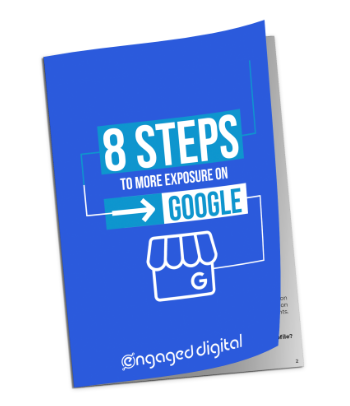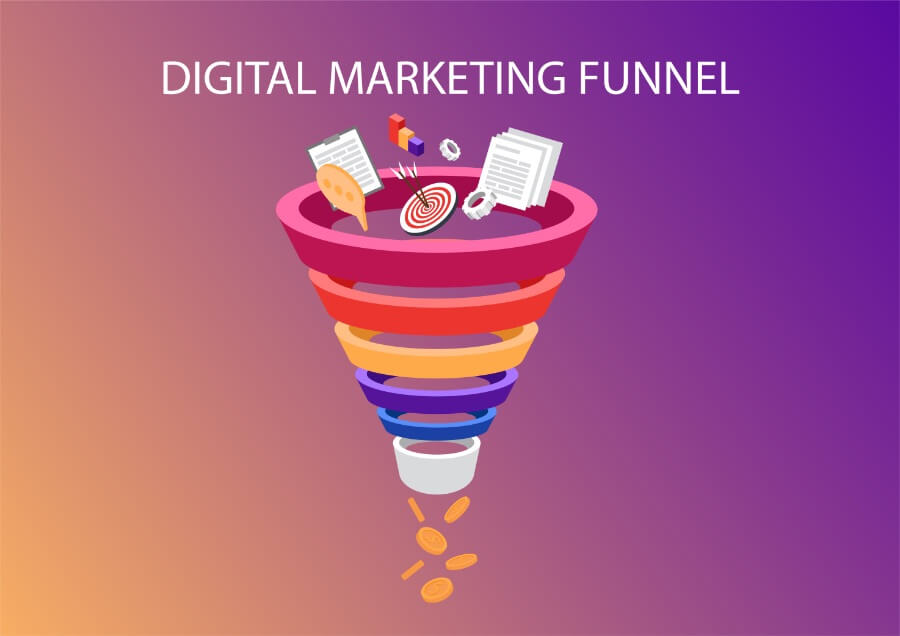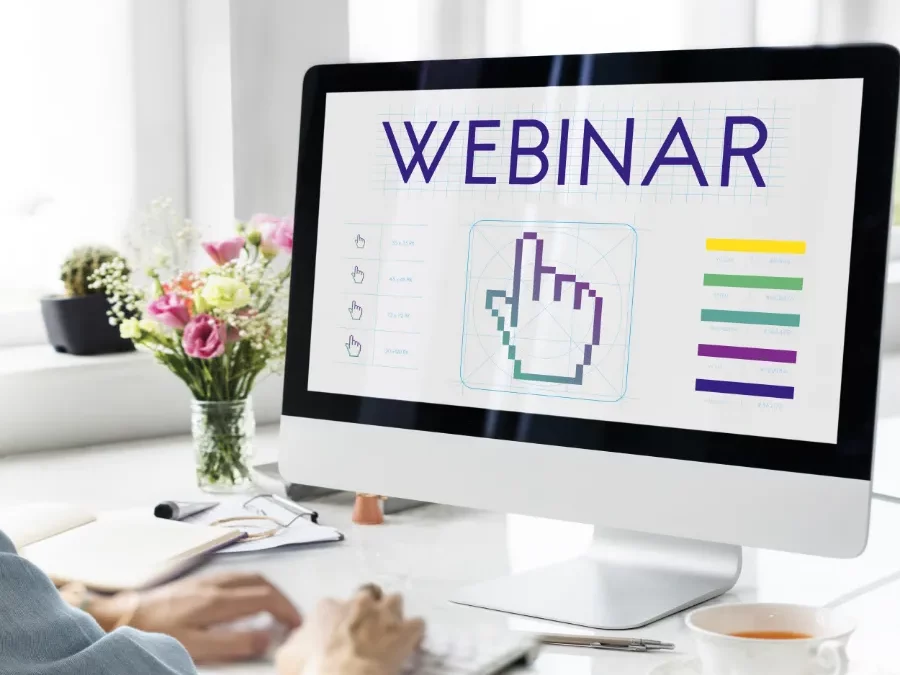Don’t worry if you’re struggling to generate leads – you’re not alone. In today’s competitive marketplace for local businesses, it can be difficult to stand out from the crowd and get noticed by potential customers.
However, there are some things you can do to increase your chances of generating more local leads.
What is local lead generation?
By definition, lead generation is “the process of identifying and nurturing potential customers for a product or service.”
In other words, it’s all about getting people interested in what you have to offer and then turning them into paying customers.There are many different strategies and tactics that businesses can use to generate more local leads, but not all of them will work equally well for every business.
Once you’ve identified your channels (more on that later), crafted a compelling message, and started measuring and analyzing your results regularly, you’ll be well on your way towards generating more local leads – and ultimately growing your business!
Why is lead generation so important for local businesses?
Local businesses face stiff competition, due in part to the explosion of businesses going online. The days of advertising in the local paper or relying solely on word of mouth are over. In order to compete, local businesses need to be proactive in generating leads and getting their name out there.
Lead generation is important for local businesses because it allows them to:
- Reach a wider audience: With lead generation, businesses can reach a larger pool of potential customers than they could with traditional marketing methods.
- Connect with customers at the right time: Lead generation allows businesses to connect with customers when they’re actively looking for products or services like theirs.
- Save time and money: Lead generation is often more cost-effective than traditional marketing methods, and it can be done quickly and efficiently.
- Measure results: With lead generation, businesses can track their progress
You need to take the time to figure out which methods will work best for your company based on your specific target market and goals.
Creating a Lead Generation Strategy
If you’re looking to generate leads, you’ll need to create a lead generation strategy. This can seem daunting, but it doesn’t have to be.
In fact, with a little planning and execution, you can create a lead generation strategy that works for your business.
Here are a few things to keep in mind when creating your lead generation strategy:
Define Your Target Market
Who are you trying to reach with your lead generation efforts? One of the most important things you can do is define your target market. Without a clear understanding of who your target market is, it will be very difficult to create a successful marketing strategy.
There are a number of ways to define your target market. The most important thing is to take the time to do your research and understand your potential customers.
Defining your target market will help you create content and campaigns that are more likely to resonate with your target audience.
Identify Your Lead Generation Goals
What are you hoping to accomplish with your lead generation strategy?
Do you want to increase brand awareness, generate more leads, or convert more leads into customers?
Identifying your goals will help you create a strategy that is more likely to achieve those goals.
Consider Your Lead Generation Channels
When it comes to lead generation, it’s important to identify the channels that are most effective for your business. One way to identify your channels is to look at your conversion rate.
This is the percentage of people who take the desired action, such as filling out a form or making a purchase.
Also, where are your potential customers handing out? Are they on YouTube, Facebook, LinkedIn, or do you want to find people who are actively searching for what your local business offers?
Some common lead generation channels include content marketing, search engine optimization, pay-per-click advertising, and social media.
If you choose the wrong channels, you’ll likely end up wasting a bunch of time and money, so do your research.
Create Compelling Content
One of the most important aspects of a successful lead generation strategy is compelling content. You need to create content that is interesting and informative enough to get people to take notice.
This content can take the form of blog posts, infographics, e-books, and more. Additionally, if you’re running ads, the ad copy can make or break your campaign, so make sure if addresses the needs of your target audience. The great thing about content for local businesses is that you can really tailor your message to your target audience. Whether you’re looking to attract new customers or keep your current ones, a well-crafted message is key.
Here are a few tips for crafting the perfect message:
- Keep It Relevant. Your message should be relevant to your target audience. This means that you need to know who your target audience is and what they’re interested in.
- Make It Interesting. Your message should be interesting enough to grab attention. This means that it should be well-written and engaging.
- Keep It Short. Your message should be short and to the point. This means that you should get straight to the point and avoid fluff.
- Use A Call-to-Action. Your message should include a call-to-action (CTAs) to encourage your target audience to take action. This could be something like signing up for your newsletter or following you on social media.
- Test It Out. Once you’ve crafted your perfect message, it’s important to test it out. This could mean sending it to a small group of people to get their feedback or AB testing it with different versions.
By following these tips, you can be sure that your message will be perfect for your target audience. Get started today!
Optimize Your Landing Pages, Forms and Calls-to-Action
If you’re driving traffic to your website with the goal of generating leads, you need to make sure that your landing pages and forms are optimized.
Your landing page should be designed to convert visitors into leads. This means that it should have a clear and compelling call-to-action, as well as a form that is easy to fill out.
Your forms should be short and to the point. The more information you ask for, the less likely people are to fill it out. Just ask for the bare minimum amount of information that you need in order to follow up with a lead.
Additionally, your call-to-action should be clear and concise. It should tell visitors what you want them to do, and it should be easy for them to do it.
Finally, your page and form should be mobile-friendly. More and more people are using their smartphones to browse the internet, so you need to make sure that your website is responsive.
Nurture Your Leads
Once you’ve generated a lead, it’s important to nurture that lead. The modern buyer does their research. They research your business and your competition. If you don’t nurture them, they’ll likely find another local business that will.
Nurturing involves following up with the lead, providing additional information, and staying in touch until they’re ready to buy. Most nurturing involves email marketing automation. There are many marketing automation tools available to help local business owners.
Measuring and Analyzing Your Results
If you’re running a business, it’s always important to keep track of your results so you can determine what’s working and what isn’t. With lead generation, this is especially important.
You need to be able to measure and analyze your results so you can make adjustments to your strategy as needed.
There are a few different ways you can measure your lead generation results:
- The number of leads generated
- The cost per lead
- Click through rate (for email marketing and advertising)
- The conversion rate
- The quality of the leads
- The lifetime value of the leads
Each of these metrics is important in its own way. The number of leads generated gives you an idea of how effective your lead generation strategy is.
The cost per lead helps you determine how much you’re spending on lead generation. The conversion rate lets you know how many of those leads are actually turning into customers.
And the quality of the leads is important because you want to make sure you’re generating high-quality leads that are likely to convert into customers.
The lifetime value of the leads is also important because it gives you an idea of how much revenue you can expect to generate from each lead over the course of their relationship with your business.
All of these metrics are important, but you don’t need to track all of them. Just focus on the ones that are most important to you and your business.
When you’re measuring your results, it’s also important to keep your goals in mind.
And finally, don’t forget to adjust your strategy as needed based on your results. When using local lead generation strategies, you shouldn’t take a ‘set it and forget it’ approach.
If you’re not happy with your results, make changes to your strategy and see if that improves things. By measuring and analyzing your results, you can ensure that you’re on the right track and making the best decisions for your business.
Examples of Local Lead Generation Strategies
Local SEO
As a local business, it is essential to generate leads in order to grow your customer base and increase sales. There are many different ways to go about generating leads, but one of the most effective methods is through local SEO tactics. By optimizing your website for local search engines, you can make sure that your business appears at the top of relevant search results. This will help you attract more attention from potential customers in your area who are looking for what you have to offer. If you’re not sure where to start with local SEO, there are a few key tactics you can focus on:
- Optimize your website for local keywords
- Claim your business listings on directories and review sites
- Encourage customer reviews
- Create localized content
By focusing on these local SEO tactics, you can help ensure that your business appears prominently in relevant search results. This will help you attract more attention from potential customers and generate more leads.
Online reviews
Yes, online reviews are a local lead generation strategy and they should be part of every business’ lead generation system. Online reviews play a vital role in local SEO and can help you attract more attention from potential customers in your area. When customers are searching for local businesses, they often read reviews to learn more about the businesses they’re considering.
If you don’t have any reviews, you’re missing out on an opportunity to improve your local SEO and generate more leads. So how can you get more reviews? The best way is to simply ask your customers to leave a review after they’ve had a positive experience with your business. You can also encourage reviews by offering incentives, such as discounts or coupons. But don’t offer incentives for Google reviews. It goes against their policy.
There are a number of tools to help automate the process of requesting reviews. One we like is More Thumbs Up.
Social media marketing
Social media is a powerful tool that can be used for lead generation. As a local business, you can use social media to connect with potential customers in your area and build relationships with them. By creating and sharing relevant content, you can attract more attention from people who are interested in what you have to offer. You can also use social media to encourage customers to leave reviews and promote your business to their friends and followers.
If you’re not sure where to start with social media, we recommend creating profiles on the major platforms, such as Facebook, Twitter, and Instagram. Once you have your profiles set up, you can start sharing relevant content and engaging with potential customers. Just remember to focus on quality over quantity, and don’t try to sell too much on social media. Instead, use it as an opportunity to build relationships and connect with potential customers.
Email marketing
Email marketing can be a great way to generate leads for your local business. By sending targeted emails to potential customers in your area, you can introduce them to your business and encourage them to take action. To get started with email marketing, you’ll need to build a list of potential customers. You can do this by collecting email addresses from people who visit your website or sign up for your newsletter. Once you have a list of potential customers, you can start sending them relevant emails. Just be sure to avoid spamming people with too many emails.
In order to maximize the success of your email marketing campaign, it’s important to personalize your messages and make them relevant to the people on your list. You should also segment your list so that you’re sending different messages to different groups of people. This will help ensure that your messages are relevant and tailored to each individual’s needs.
Pay per click (PPC) advertising
PPC advertising is a form of paid marketing that allows you to place ads on search engines and other websites. When someone clicks on your ad, they’re taken to your website, where they can learn more about your business. PPC is a great way to generate leads because it allows you to target potential customers who are already interested in what you have to offer.
When creating a PPC campaign, you’ll need to choose the right keywords to target. These are the words and phrases that people use when they’re searching for businesses like yours. You’ll also need to create effective ad copy that will persuade potential customers to click on your ad. Once you’ve created your campaign, you’ll need to track your results and optimize your ads to ensure that they’re as effective as possible.
Get involved with your local community
As a local business owner, getting involved with your local community is another way to get local leads. There are a number of ways you can do this, such as volunteering, sponsoring local events, or hosting community gatherings. By getting involved with your community, you can develop relationships with potential customers and show them that you’re invested in their well-being.
In order to get the most out of your community involvement, it’s important to choose activities that are relevant to your business. For example, if you own a restaurant, you might consider sponsoring a local food drive or volunteering at a soup kitchen. If you own a retail store, you might host a fashion show featuring local designers. Whatever you choose to do, make sure it’s something that will resonate with your target audience.
How to get started?
You have a few choices for how to get started with local lead gen. You can either assign the project to your employees, do it yourself, or hire an agency that knows how to do it.
Of course, we would prefer the latter, but the reality is, for most businesses it makes sense to outsource this sort of work.
If you’d like to learn more, click here to book a call for a free strategy session.
Conclusion
Developing a lead generation strategy for your local business doesn’t have to be difficult. By using the tips and tactics above, you can start generating leads in no time. Just remember to focus on quality over quantity, and always keep your target audience
And remember – measure and analyze your results regularly so that you can continue fine-tuning your approach and getting better results over time!
Local Lead Generation FAQs
Is Local lead generation profitable?
Yes, local lead generation can be profitable for businesses that are looking to target customers in their local area. There are a number of ways to generate leads locally, including online advertising, direct mail campaigns, and word-of-mouth marketing.
Can local lead generation be outsourced?
Yes, local lead generation can be outsourced to a number of different companies that specialize in this type of marketing.
What are some common local lead generation mistakes?
Some common local lead generation mistakes include not nurturing leads, not measuring results, and not making adjustments to your strategy based on those results.
How much do you pay for lead generation?
There is no definitive answer to this question as the cost of lead generation can vary greatly depending on the methods used and the location. However, some local businesses may spend anywhere from a few hundred to a few thousand dollars per month on local lead generation efforts.
Next Steps
Let us evaluate your business. We offer a complimentary Digital Marketing Playbook for qualified businesses (businesses that serve local clients).







